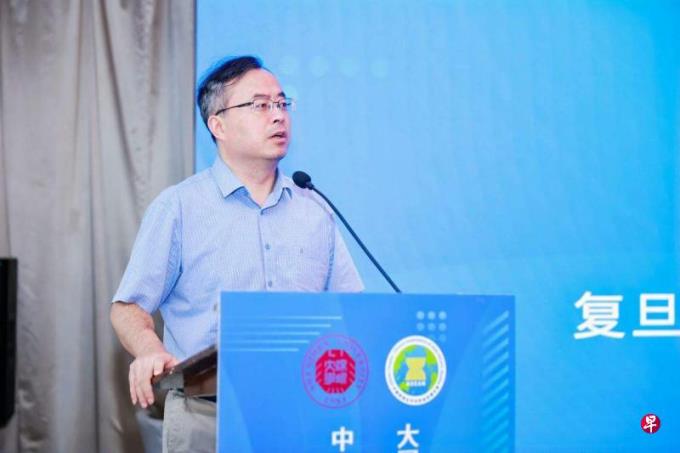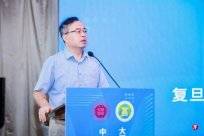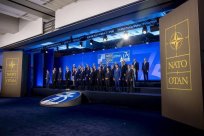
The evolution of Sino -US competition after the presidential election of the United States will affect Southeast Asia.Song Guoyou, deputy director of the American Research Center of Shanghai Fudan University, believes that no matter who has the White House, the United States will continue to put pressure on China in the fields of tariffs, technical blockade; Asian'an will benefit from the competition of large powers, but must be alert to strategic spillover effects.
Song Guoyou delivered a speech at a seminar in Shenzhen on Thursday (July 18) in the afternoon of Thursday (July 18) that competition between China and the United States has become the main theme of today's era and will lead the relationship between the two countries for a long time.
Song Guoyou believes that the core of Sino -US competition is the economy. Although China's economic growth has slowed down, its economic aggregate has reached three -quarters of the United States in 2021. This economic strength makes the United States feel uneasy and and and and also.Take a series of measures to curb.
Song Guoyou studied that the United States will take the competitive strategy of China's economy, including improving tariffs, implementing technical blockade in China in the field of high -tech, strengthening the Chinese high -quality ally system strike, and large -scale adjustment of industrial policies.
Trump, a former US President and Republican candidate, who has led a number of polls, said that if Tariffs increased from 25%to 60%.The current President Biden, who is seeking re -election, also announced in May this year that tariffs are added to imported electric vehicles and other products from China.
Song Guoyou pointed out that the sharp increase in tariffs will have a huge impact on the Chinese economy."Whether it is a gaming method or a policy of implementation, this is worthy of being vigilant in China."
In the past few years, the United States has implemented export control and technical blockade to China in order to slow down China's scientific and technological development.Song Guoyou believes that the United States will continue in this regard, and the blocking strategy will be changed from the "small courtyard wall" to "large courtyard low wall"., scope and intensity are continuously expanded and strengthened.
Trump positions himself as an anti -building style during the first term to oppose the concept of globalism.After taking office, Biden was amended in foreign policy, and cooperated with allies to form a common strategy for China.
Song Guoyou believes that after Trump, who focuses on unilateral diplomacy, may adjust his cooperation method with allies to re -dominate foreign policies.
But he emphasized that although Trump has the characteristics of anti -establishment, the strategy of U.S. elites on China's competition has been deeply affected by the establishment of the system, so the way the United States has attracted allies will not change significantly.
He said: "We are worried that the rotation of several presidents of the United States is not a strategy of gulfing, turning the pancake -type, but also glory to each other, and learn from each other to learn the upgraded version of the Chinese strategy."
The competition between China and the United States in Southeast Asia has become increasingly fierce in recent years.Song Guoyou believes that competition between the two countries will not directly affect the relationship between China and Asians; Asia's Fisheries can gain profit from the Chinese fishermen, while strengthening trade with China, they also carry out higher -level economic and trade cooperation with the United States.
Lu Guangsheng, Dean of the Yunnan University Institute of International Relations, who attended the same forum, believes that if Trump is elected, high tariff policies may lead to the peeling of Sino -US economic and trade relations, thereby accelerating the cooperation between China and Asia in the industry and supply chain.Essence
However, Song Guoyou reminded that Asians need to be alert to the overflowing effect of the United States' strategy to China.For example, the United States is currently considering increasing taxes on Mexican electric vehicles and increasing labor costs to fill its so -called Chinese strategic loopholes.Mexico is a manufacturing point added by many Chinese car companies to open up the North American market.
He said: "These pressures have already had some effects ... It is not difficult to rule out the United States' coordination of Mexico, and to come to ASEAN (Yajia'an) and other mechanisms through the Indo -Pacific Economic Framework (IPEF)."
Zhang Zhenjiang, Dean of the School of International Relations of Guangzhou Jinan University and Dean of the Overseas Chinese Research Institute, said at the same meeting that the relationship between China and Asians should surpass the framework of the competition in large powers, and refers toThey all have unique logic and development paths.
The academic forum called "China -ASEAN Cooperation" called "Big Power Competition" is co -sponsored by Shenzhen University and the ASEAN Branch of the Chinese Asian Pacific Society.The newly established ASEAN Branch of the Chinese Pacific Society of Asia held an unveiling ceremony at the event.




